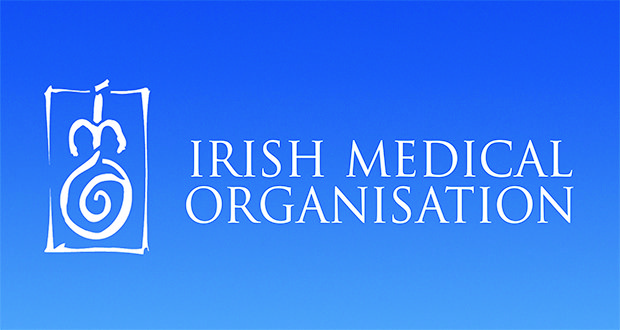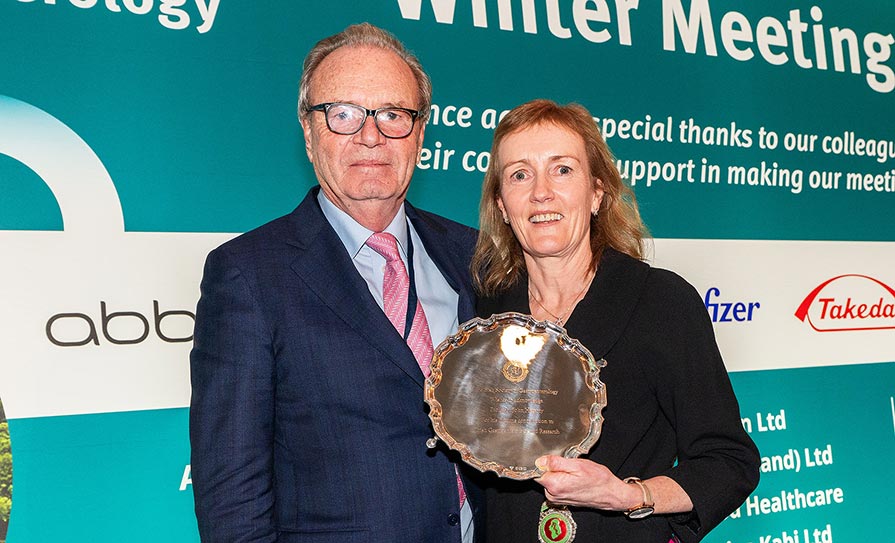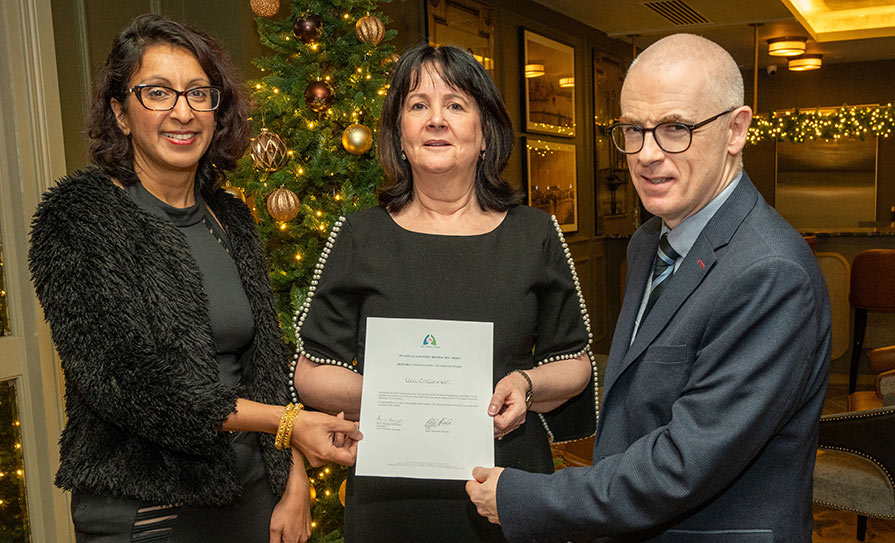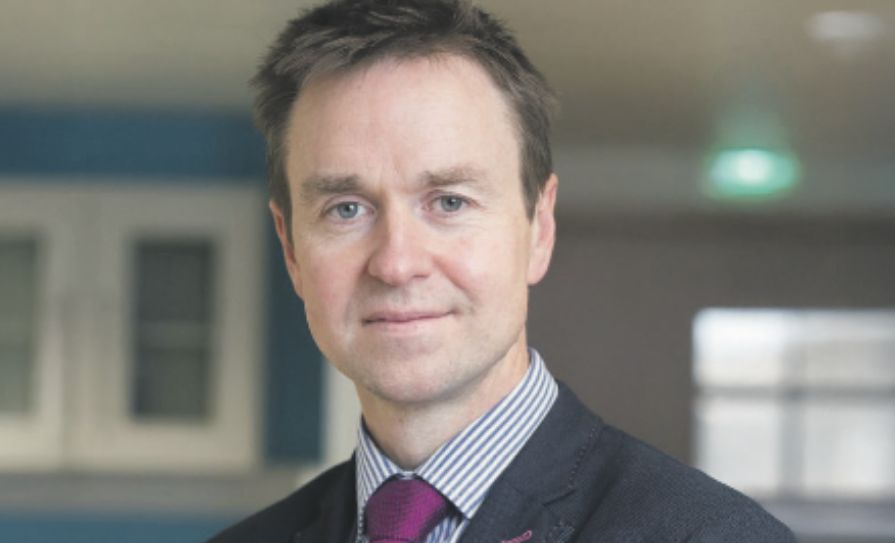Senior Industrial Relations Officer with the IMO, Mr Paul Maier, describes the major issues facing NCHDs at this challenging time
Since the beginning of the pandemic, the NCHD body has been at the forefront of the Covid-19 response. The IMO, on behalf of its members, engaged with the HSE on the critical issues around personal protective equipment (PPE), redeployment, annual leave, childcare, and a myriad of new arrangements as the health service reorganised.
From the outset, communication with our members, listening to their concerns and reflecting those issues back to management, has been the focus of our work. Through it all, the importance of an active and strong union was paramount and we are delighted that so many NCHDs joined the IMO this year and got involved in a network of local representatives on the ground. It is testament to the dedication of those members that so many went forward for election to serve on the NCHD national committee.
This starts with our student members, who realised very quickly this year why it was important to be a student member of the IMO. As the pandemic quickly emerged as a major threat, final year medical students had their exams accelerated. Within a matter of weeks, rumours of them being immediately pressed into service were swirling. In this time of uncertainty, we contacted our IMO student representatives on the ground, and they gathered nearly all students into membership.
The IMO served as a key source of reliable communication to this group and negotiated on their behalf with the HSE; first on the number of placements, which will be made available, then the terms of their early entry into the workforce, on the way which their preferences would be calculated, and finally on the payment of online induction activities. We were able to negotiate preferable arrangements for our members in all these areas due to the strength they held and the unified voice they possessed through the IMO.
Member engagement was also critical when it came to understanding the needs of our members on the frontline. We had to adapt to new ways of communicating with members and we relied on the local representative network of over 1,560 NCHDs in hospitals around the country. They gave us essential information on how things were going: Hours worked; changes in the services they provided; and the level of protection they were getting. We were able to advocate on a national level with the HSE on changes were required. We also increased our communication to members through regular updates, webinars and our member advisory service were always on hand to provide clarity, support, and advice.
The IMO negotiated and agreed with the HSE’s national doctors training and planning (NDTP) division to “roll over” individual training support scheme funds for NCHDs in 2020 and 2021. We inserted specific provisions into national union agreements that would allow NCHDs the ability to be paid for annual leave untaken at the end of their employment contract after hearing that NCHDs were unable to take any leave during the height of the pandemic.
We secured arrangements for those who could not attend work due to falling ill with Covid that protected their overtime payments. We provided options to our members with childcare responsibilities to alter their working patterns, and if required, work from home, after many reached out to tell us the stress they felt trying to do it all. We were also centrally involved in ensuring that NCHDs were properly prioritised for vaccination and ensured that NCHDs did not fall through the cracks for second doses as a result of the changeover. Through all of these achievements, our connection and communication with members was key to the work of protecting them.
Survey
Despite the need to prioritise our response to Covid-19, the NCHD committee has also committed itself to progressing a number of long-standing issues this year. Chief among these is the ongoing issue of illegal and dangerous working hours. Compliance with the European Working Time Directive (EWTD) was decided in 2019 as the NCHD committee’s first long-term priority, and significant work has been undertaken on progressing this mammoth issue in the past year. An EWTD survey of NCHDs reached over 1,000 doctors across the country, and provided results that showed the reality that NCHDs lived every day. Respondents nationally reported only 25 per cent compliance with an average maximum 48-hour work week and only 69 per cent compliance with a maximum 24-hour shift.
The difference with this survey from those in the past, was that NCHDs didn’t just tell us the hours they were doing, they told us what they were willing to do about it. They are willing to take action to push back on these hours, including participating in group claims, requesting inspections, and even bringing individual complaints to the Workplace Relations Commission. The willingness of members to get involved and take action is key to pushing this issue forward and make legal and contractual compliance a reality for NCHDs across the country.
New working groups
The NCHD committee also began four new working groups which focus on specific policy areas. These groups provide a more focused and dedicated effort on issues which require deep expertise and a consistent, concerted campaign. These working groups focused on 2020 interns, international doctors, women in medicine and health and wellbeing. Each is comprised of approximately 10 NCHD members, led by a national committee chair who meets with the group quarterly and reports progress back to the national committee.
The 2020 interns group, led by Dr Jamie McGettigan, initially kept its focus on their early entry into medicine, but as the year unfolded, progressed matters like the need for increased basic specialist training, positions to ensure adequate opportunities for the expanded intern group, the need to pay all overtime worked and approved without exception, and a form of recognition for serving over one year at the intern rate of pay. On the last issue, the working group has corresponded with the HSE National Director of Human Resources proposing a solution and is prepared to make a collective claim on behalf of all interns in respect of compensation for their unique service.
The international doctors working group, led by Dr Eoin Murphy, is comprised of “international doctors” of all kinds, including immigrant doctors who received their medical education abroad and doctors who immigrated to Ireland to complete medical school in Ireland. Despite a wide and ambitious agenda, the international doctors working group has made more progress on these issues than there has been in years.
Through advocacy behind the scenes and through social media, under the IMO banner and in self-organised campaigns, members successfully lobbied for the required changes to the Medical Practitioners Act, allowing all NCHDs the opportunity to compete for training positions. They successfully advocated for an increase in intern and specialist training scheme positions to accommodate greater non-EU applicants.
Members are also in discussions with the HSE to create a non-scheme digital logbook as a foundation for non-scheme educational attainment. In addition, the Department of Justice has committed to expediting its processing of naturalisation applications, research has been presented to training schemes and the HSE regarding the legality of stamp 4 equivalency, and proposals are due to be sent to all Hospital Groups promoting the expansion of two-year commitments to NCHDs, permitting them to obtain a critical skills work permit.
The women in medicine working group, led by Dr Rachel McNamara, focused its efforts on a number of projects: The use of surveys to reduce uncivil workplace behaviour; a survey exploring the experience of healthcare workers who are pregnant; increasing access to flexible training positions; and an expansion of geographic localisation of training schemes to reduce cross-country moves. In these areas, significant progress has been made:
Proposals are being developed to include uncivil behaviour checks in training scheme evaluations and the Your Training Counts survey from the Medical Council; the survey on pregnant healthcare workers is currently live and has had successful engagement from NCHDs across the country; the IMO is working with training schemes to expand flexible training positions and to increase interest and promotion of such roles, including through job-sharing; and exploratory discussions through the MacCraith group on medical training have found general consensus for greater localisation and more notice for required moves.
The health and wellbeing working group, led by Dr Norella Broderick, has undertaken a series of literature reviews to better understand the impact of long working hours, night working and shifts from night-to-day working patterns on doctors, using studies on other professions such as aviation. This review includes a perspective on both physical and mental health and the shocking findings from this review are currently being compiled for publication and promotion in the media.
In addition, groundwork is being laid to develop a programme of peer support and training for IMO reps to assist their colleagues in times of stress and difficulty. The group is considering the use of coaching principles and the creation of ‘Balint groups’ to allow NCHDs room to share their challenges and affirm a working reality, which can often be both deeply personally challenging and, as can be seen with the NCHD experience on working time, outright denied and contradicted by the system itself.
Through all these activities, the engagement of NCHDs and their NCHD committee, led ably by the tireless efforts of outgoing Chair Dr Paddy Hillery, have been the key to our success in the year past. Now the 2021-2022 IMO national NCHD committee, elected in one of the largest, most competitive and diverse NCHD committee elections in recent memory, has the task of bringing all of this work forward into a new era.













Leave a Reply
You must be logged in to post a comment.